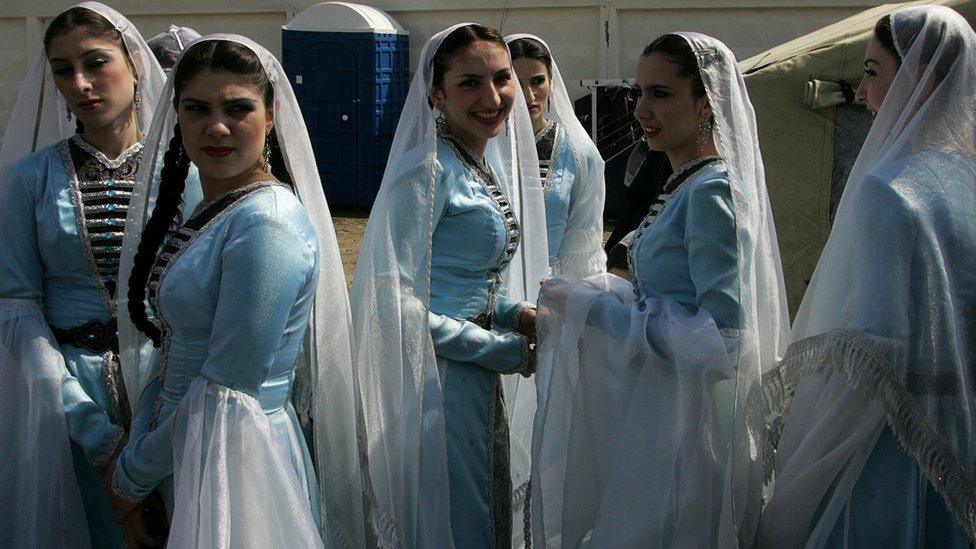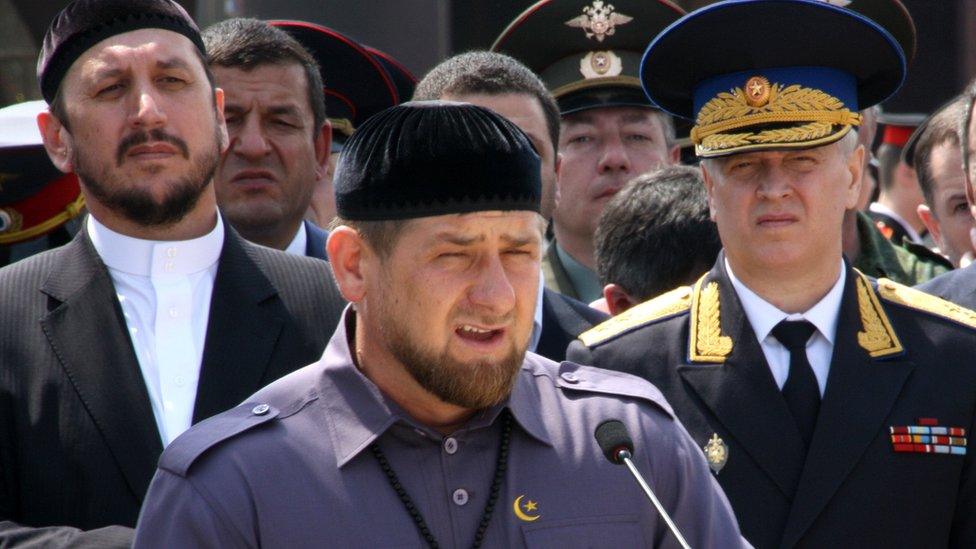Chechen leader Kadyrov presses divorcees to reunite
- Published

Chechen women in traditional dress: There is family and state pressure to conform
Chechnya's authoritarian leader Ramzan Kadyrov is spearheading a campaign to reunite divorced couples, involving Muslim clerics who preach Sharia law.
A commission appointed by Mr Kadyrov claims to have reunited 948 couples in six weeks. He has espoused conservative Islam in the Russian Caucasus republic.
But some ex-wives have complained of unfair pressure to reunite. One woman called the initiative "violent".
An official said a man could have two wives if that benefited the children.
Rasul Uspanov, secretary of the Chechen "headquarters for harmonising marital and family relations", said there were cases where, after divorce, the children were living with their father, who had remarried.
"After our commission's work, he got his first wife back, and now lives with two wives, because under Islam a man can have four wives," he said.
Men under those circumstances "understand that it's better for the birth mother to live with her children, instead of watching from the sidelines and suffering", he said.
But a woman called Bariyat, quoted by BBC Russian, said she had been divorced for 12 years and "if the commission approaches me I'll refuse".
"It's violence against people," said Bariyat, who lives in the capital Grozny. "If a couple got divorced, most likely it was a definite decision." She noted that sometimes in Chechnya, couples got married without knowing each other, but on the basis of recommendations.
"They got married but were incompatible - so why force them into it?" she said.
'They want to exterminate us', says Chechen gay man

Ramzan Kadyrov (C) often extols conservative Islam and the traditional family
Another Grozny resident, called Zarema, was quoted as saying the pressure came directly from Ramzan Kadyrov.
"If you refuse, it means you are going against not only religion and customs, but also against his will. It is clear that, when you are pressed from all sides, you have to agree."
When he announced the initiative in July, Mr Kadyrov said children from broken homes were more likely to be recruited by extremists.
"The clergy, heads of villages and districts, police chiefs must find out why people have got divorced. We must read them [religious] lessons, teach, help, work on this question," he said.
Human rights groups accuse Mr Kadyrov's security forces of grave abuses including the kidnap and torture of opponents.
Earlier this year they were accused of arresting gay - or allegedly gay - men and torturing them. Chechen officials denied that, and some simply denied the existence of gay people in Chechnya.
Fiercely loyal to Russian President Vladimir Putin, Mr Kadyrov has crushed dissent in Chechnya, since Russian and local troops quelled a separatist insurgency.
One of Mr Kadyrov's family reunion team, Rustam Abazov, insisted that "there are no forced reunions, because we live in a civilised society".